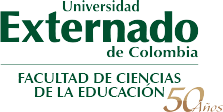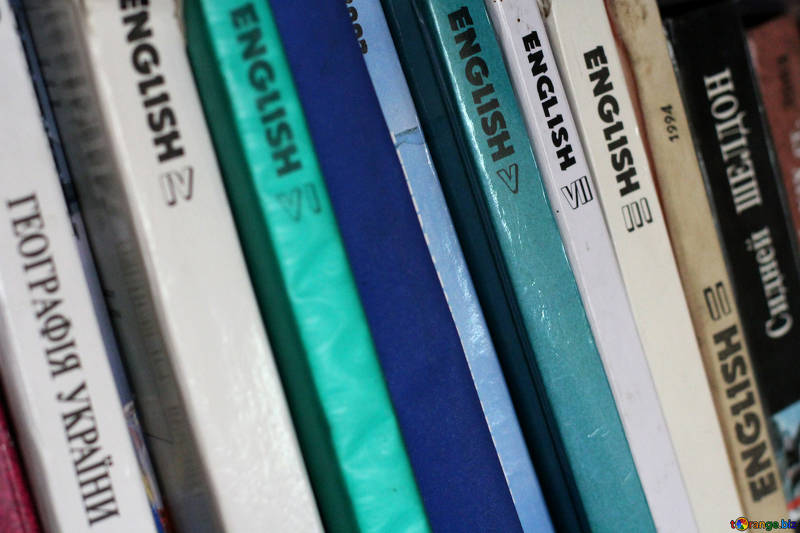25 de septiembre de 2018
Critical Interculturality to Disrupt Coloniality in the English Textbook
This article problematises the coloniality present in the English textbook in terms of being, knowledge, and power. It also proposes the decolonial turn and critical interculturality as theoretical stances that might offer an alternative to overcome the decontextualisation of this pedagogical resource.
Astrid Núñez Pardo M.A.
This article problematises the coloniality present in the English textbook in terms of being, knowledge, and power. It also proposes the decolonial turn and critical interculturality as theoretical stances that might offer an alternative to overcome the decontextualisation of this pedagogical resource.
English textbooks have been and continue being used as the main teaching and learning resources in EFL contexts. However, their themes, contents, predominance of superficial and static aspects of hegemonic cultures, iconography, learning activities and methodologies -that do not correspond to the historic, sociocultural, economic and educational needs of local contexts- suggest that textbooks produced by foreign and local publishing houses are decontextualised. They are unresponsive to the complexity of changing needs and interests of local contexts and thus, inappropriate to the cultural diversity of English teaching and learning settings (Canagarajah, 2005; Kramsch, 1993; Kumaravadivelu, 1994; Rico, 2012; Valencia, 2006). This decontextualisation implies that the EFL textbooks misrepresent both the plurality of both local and target cultures. It also hinders the development of individuals’ critical intercultural communicative competence (Rico, 2012), consciousness of the world surrounding them (Freire, 1971; Pennycook, 1994, 1997), and critical intercultural consciousness (Viaña, Tapia & Walsh, 2010; Walsh, 2005, 2009, 2014, 2015) toward transformative and heterogeneous cultural realities. Thence, English textbooks are colonised in the dimension of being, knowledge and power.
Regarding the coloniality of knowledge, textbooks are instrumental and focused on grammatical structures (Kramsch, 1993; Núñez, Téllez & Castellanos, 2013; Rico, 2012; Tomlinson, 2013). They are influenced by foreign methodologies that disregard the particularities of local contexts (Canagarajah, 2005; Giroux & Simon, 1988; Kumaravadivelu, 2001; Prabhu, 1990). They also advocate the idea that one nationality is superior to others (Guijarro, 2005; Ndura, 2010; Yassine, 2012), which turns the teachers pedagogical practice into a routinely exercise (Fernández-Reiris, 2006; Kincheloe & McLaren, 2015; Martínez, 2008; Prabhu, 1987), deterring self-contextualisation and self-construction of pedagogical knowledge (Kumaravadivelu, 2006, 2003, 2001, 1994) in local settings, as the result of teachers’ reflection on their students’ language learning and affective needs and their daily teaching practice.
Concerning the coloniality of power, this commercially-oriented publishing industry neglects the nature and social function of textbooks (Álvarez, 2008; Cárdenas, 2006; Giroux, 2001; González, 2012, Núñez et al., 2013; Rico, 2012; Kumaravadivelu, 2014, Usma, 2009). Educational and language policy also imposes the variety of English and content to be taught, as well as the methodologies to be used. This reductionist principle of one-size-fits-all (Allwright, 1982), commercialises, homogenises and naturalises the teaching and learning processes, detracting decision-making from teachers and students, the subjects ultimately involved in the teaching and learning of EFL.
In reference to the coloniality of power, textbooks constitute an instrument that disseminates and perpetuates the idea that non-native English speakers, such as those from Asian, Latin-American and African countries, belong to the subaltern community. This notion reduces non-native English teachers to individuals that are unable to produce, but to consume knowledge, which also leads to the hegemony of the native speaker’s ideology (Faez, 2011; Graddol, 1999; Pennycook, 1998; Kachru, 1990; Viáfara, 2016). These power structures that emerged from colonialism and remained via capitalist global organisations like the International Monetary Fund and the World Bank, “maintain the periphery in a subordinated position” (Quijano, 2000, p. 13) and the centre-periphery relations in a global coloniality (Castro-Gómez & Grosfoguel, 2007). This coloniality is perceived in sociocultural manifestations that favour textbooks published by foreign editorials and their subsidiaries in periphery countries; ironically, these generic commercial materials are considered more appropriate.
Correspondingly, the decolonial turn is proposed to tackle this alienating condition. This line of thought, according to Granados (2016), “[was] developed by a group of Latin American and Caribbean intellectuals who are interested in critiquing the idea of modernity based on the peoples who lived it under a subaltern condition, that is to say, former colonies” (p. 174). Initially, envisioned by Maldonado-Torres (2006), and later addressed by Mignolo (2010), this turn implies an ‘epistemic decolonisation’ (Mignolo, 2010) or an ‘epistemic break’, as named by Kumaravadivelu (2012, 2016). Indeed, this rupture requires intellectual work and social action from a community that withstands decolonial educational practices, produces context-sensitive or localised materials, and conducts research that yields local knowledge. Besides, this break may accomplish the purposes of emancipating critical thinking, reducing Eurocentric-knowledge dependence, and resisting the supremacy of political and socio-economic agendas that legitimate the interests of the dominant social order.
Therefore, the English textbook needs to be developed from the perspective of critical interculturality to reconciliate differences between the local and the foreign in harmony with universal culture. Interculturality, as claimed by Walsh (2005), seeks the construction of other ontological, epistemological, and autonomous forms, which are correspondingly significant and legitimate, in a reciprocal and respectful relationship that is harmonious and symmetrical within the universal sociocultural diversity. This way, textbooks may stop using the foreign language “to exclude, depersonalize, stigmatize, reinforce stereotypes, and legitimize discrimination” (Thompson, 2003, p. 139). Thus, critical interculturality constitutes a pedagogical decolonising alternative that has a manifold purpose: first, to inform the development of a desirable contextualised English textbook; second, to enable the formation of individuals with higher order thinking skills. Third, to foment the development of individuals’ social awareness, which could make them capable of assuming a critical stance toward the realities of the world they are immersed in, as a way to resist Eurocentric epistemologies, social practices and behaviours, and forms of autonomy. And fourth, to offer the possibility to recognise other voices and enunciation loci with independence.
In essence, there is a need to appraise how to achieve the desired contextualisation of the English textbook from the local perspectives of both teachers and students’ cultural backgrounds for it to go beyond the instrumental role of the language to accomplish its social function within the context of learning English as a foreign language.
__________________________
References
Allwright, R. L. (1981). What do we want teaching materials for? ELT Journal, 36(1), 5– 18.
Canagarajah, S. (2005 a). Reconstructing local knowledge, reconfiguring language studies. In S. Canagarajah, (Ed). Reclaiming the Local in Language Policy and Practice. (pp. 3-24). Mahwah, NJ, USA: Lawrence Erlbaum Associates
Castro-Gómez, S. & Grosfoguel, R., (Eds.) (2007). El giro decolonial: reflexiones para una diversidad epistémica más allá del capitalismo global. Bogotá: Universidad Central, Instituto de Estudios Sociales Contemporáneos y Pontificia Universidad Javeriana, Instituto Pensar.
Faez, F. (2011). Reconceptualizing the Native/Non-native Speaker Dichotomy. Journal of Language, Identity & Education, 10(4), 231-249.
Freire, P. (1971), Pedagogy of the oppressed. New York: Herder and Herder.
Giroux, H. (2001). Public spaces, private lives: beyond the culture of cynicism. New York, USA: Roman & Littlefield.
Giroux, H., & Simon, R. (1988). Schooling, popular culture, and a pedagogy of possibility. Journal of Education, 170(1), 9-26.
González, A. (2006). On Materials Use Training in EFL Teacher Education: Some Reflections. PROFILE Issues in Teachers` Professional Development, 7, 101-116.
Graddol, D. (1999). The decline of the native speaker. AILA Review 13, 57-68.
Granados-Beltrán, C. (2016). Critical Interculturality. A Path for Pre-service ELT Teachers. Íkala, Revista de Lenguaje y Cultura, 21(2), 171-187.
Gray, J. (2000). The ELT coursebook as cultural artefact. ELT Journal, 54(3), 274–283.
Guijarro, J. R. (2005) La representación axiológica del género y la orientación sexual en libros de texto de inglés para Secundaria [Axiological representation of gender and sexual orientation in the English textbook]. Porta Linguarum, 4,151-166.
Kachru, B. (1990). World Englishes and applied linguistics. World Englishes, 9, 3-20. doi:10.1111/j.1467-971X.1990.tb00683.x
Kincheloe, J. L., & McLaren, P. (2015). Rethinking critical theory and qualitative research. In N.K. Denzin & Y. S. Lincoln. (Eds.). The SAGE handbook of qualitative research. (3ed., pp. 241-315) Thousand Oaks, California, USA: Sage Publications
Kramsch, C. (1993). Context and culture in language teaching. Oxford, UK: Oxford University.
Kumaravadivelu, B. (1994). The post-method condition: (E)merging strategies for second/foreign language teaching. TESOL Quarterly, 28(1), pp. 27- 48.
Kumaravadivelu, B. (2001). Postmethod pedagogy. TESOL Quarterly, 35(4), 537-560.
Kumaravadivelu, B. (2003). Beyond methods: macro strategies for language teaching. New Haven; USA: Yale University Press.
Kumaravadivelu, B. (2006). Dangerous liaison: Globalization, empire and TESOL. In J. Edge (Ed.), (Re)locating TESOL in an age of empire (pp. 1–26). New York, USA: Palgrave Macmillan.
Kumaravadivelu, B. (2016). The Decolonial Option in English Teaching. Can the subaltern act? TESOL Quarterly, 14(1), 66-85.
Maldonado-Torres, N. (2006). Against War. Durham, London, UK: Duke University Press.
Mignolo, W. (2010). Delinking: The rhetoric of modernity, the logic of coloniality and the grammar of de-coloniality. In W. Mignolo & A. Escobar (Eds.), Globalization and the decolonial option. pp. 303 – 368. New York, USA: Routledge
Ndura, E. (2010). ESL and cultural bias: An analysis of elementary through high school textbooks in the western United States of America. Language, Culture and Curriculum, 17(2), 143-153. doi: 10.1080/07908310408666689
Núñez, A., Téllez, M.F., & Castellanos, J. (2013). Proposal for the Research Line Materials Development and Didactics Ascribed to the Research Group: Critical Pedagogy and Didactics for Social Transformation. Unpublished manuscript, School of Education, Universidad Externado de Colombia, Bogotá, Colombia.
Pennycook, A. (1994). The cultural politics of English as an international language. New York, USA: Routledge.
Pennycook, A. (1998). English and the discourses of colonialism. London, UK: Routledge.
Prabhu, N. S. (1990). There is no best method—Why? TESOL Quarterly, 24, 161-176.
Quijano, A. (2000). Colonialidad del poder y clasificación social. Journal of World-Systems Research, 2, 342-386.
Rico, C. (2012). Language teaching materials as mediators for ICC development: A challenge for materials developers. Signo y Pensamiento, 30, 130-154.
Thompson, N. (2003). Promoting Equality. Challenging Discrimination and Oppression. UK. Macmillan Education. doi:10.1007/978-0-230-21647-1
Tomlinson, B. (2013). Developing materials for language teaching. London, UK: Bloomsbury Publishing Plc.
Usma, J. (2009). Education and language policy in Colombia: Exploring processes of inclusion, exclusion, and stratification in times of global reform. PROFILE Issues in Teachers’ Professional Development, 1, 123-141.
Valencia, S. (2006). Literacy practices, texts, and talk around texts: English language teaching developments in Colombia. Colombian Applied Linguistics Journal, 8, 7-37.
Viáfara, J. J. (2016). “I’m Missing Something”: (Non) Nativeness in Prospective Teachers as Spanish and English Speakers. CALJ, 18(2), 11-24
Viaña, J., Tapia, L., & Walsh, C. (2010). Construyendo interculturalidad crítica. La Paz, Bolivia: Instituto Internacional de Integración del Convenio Andrés Bello.
Walsh, C. (2005). Interculturalidad, conocimientos y decolonialidad. Universidad Javeriana: Revista Signo y Pensamiento, 44(XXIV), 39-50.
Walsh, C. (2009). Interculturalidad crítica y educación intercultural [Critical interculturality and education]. Artículo ampliación de la ponencia presentada en el Seminario “Interculturalidad y Educación Intercultural”, organizado por el Instituto Internacional de Integración del Convenio Andrés Bello, La Paz, 9-11 de marzo de 2009. pp.1-18.
Walsh, C. (2014). Lo pedagógico y lo decolonial: entretejiendo caminos. En C. Walsh (Ed.) Pedagogías Decoloniales. Prácticas Insurgentes de Resistir, (Re)Existir y (Re)Vivir Tomo I. Quito: Editorial Abya Yala.
Walsh, C. (2015). ¿Interculturalidad? Fantasmas, fantasías y funcionalismos. En C. Montufar y F. Balseca (Eds). Ecuador: desafíos para el presente y el futuro. (pp. 269-282). Quito, Ecuador: Universidad Andina Simón Bolívar, Ediciones La Tierra.
Yassine, S. (2012). Culture issues, ideology and otherness in EFL textbooks: A social, semiotic, multimodal approach (Unpublished Doctorate Thesis). Algeria: Mouloud Mammeri University of Tizi-Ouzou.


